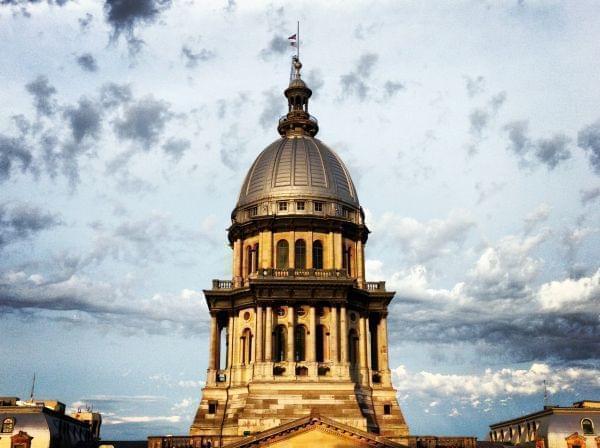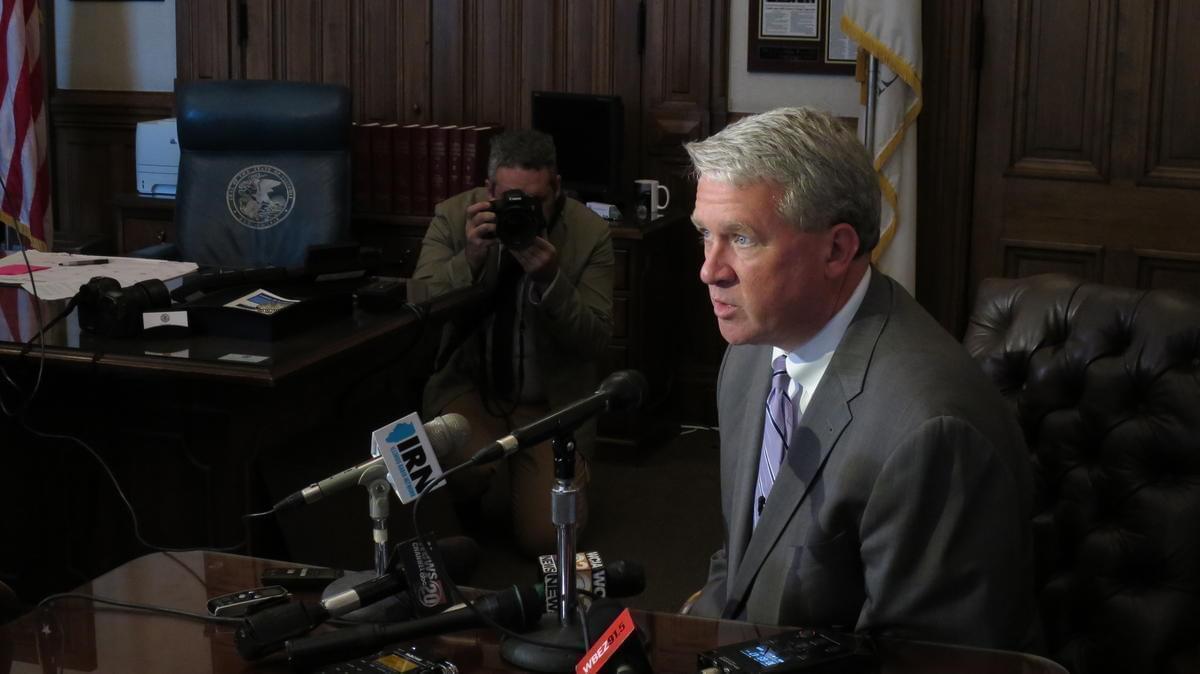Illinois House Democrats Introduce Budget, But It Will Not Pass Without Some GOP Support

There was more movement in budget negotiations Tuesday in Springfield, where Illinois House Democrats introduced their own budget plan. But it will need Republican support. (Brian Mackey/IPR)
There was more movement in budget negotiations Tuesday in Springfield, where Illinois House Democrats introduced their own budget plan. But it will need Republican support, and the GOP House leader says Democrats are needlessly complicating the process with a new demand.
The proposed Democratic budget would fully fund Illinois government for the first time in two years.

Representative Jim Durkin, who leads House Republicans, says legislation from Speaker Michael Madigan that is not related to the budget complicates the budget process.
House Speaker Michael Madigan says it incorporates a lot of suggestions from Republicans.
“I’m not saying that this is perfect. I’m not saying that it completely meets every request of the governor,” Madigan said. “But I think that it goes a long way toward giving the state of Illinois a good solid spending plan that responds to the real needs of the state."
And, he said, it would spend less than the budget Republican Gov. Bruce Rauner introduced in February.
Taxes would have to go up to meet these spending levels. Democrats say that aspect of their plan is still being worked out.
If lawmakers and the governor can't agree on a spending plan by Friday, which is the end of the fiscal year, Illinois will enter a third year without a budget.
That prospect comes with the possibility of Illinois' credit rating being lowered to junk status, which would make it more expensive for the state to borrow money for major projects. And without either a budget or some other method of providing funding for public schools, some districts have talked about the possibility of running out of money over the next few months.
Democrats say their plan wouldn’t create any new programs. But it would direct money away from some of Rauner’s priorities — like modernizing state computers — to shore up social services.
And Republicans are criticizing Democrats for introducing a new demand in budget negotiations.
Representative Jim Durkin, who leads House Republicans, says Speaker Michael Madigan, who leads House Democrats, is insisting that Governor Bruce Rauner sign off on a bill to let Chicago raise cell-phone fees.
“Three-and-a-half days out before the close of the fiscal year, and new demands from the speaker over-complicates closure to this process," Durkin said.
If Chicago raises the fees, the money would be used to pay for 911 services.
The complicated bill also extends funding for downstate 911 centers and would let AT&T phase out traditional landline telephone service.
The legislation passed with bipartisan support, but Rauner prefers a so-called “clean” bill that would allow current 911 services to continue.
Neither Democrats nor Republicans have been willing to say exactly how they’ll pay for their competing budgets. Both have held back on legislation to raise taxes.
Links
- The State of Illinois Budget and Economy
- Illinois Budget Fight Could Affect 2018 Elections
- As Illinois Budget Crisis Continues, People With Addictions Find Tougher Road To Treatment
- Moody’s Issues Another Round Of Credit Downgrades For State Universities
- Moody’s Lowers Illinois’ Credit Rating Over Budget Impasse
- Illinois to Halt Roadwork Without Budget; Travel Ban; Peoria Ag Lab
- After Long Opposing Rauner’s ‘Non-Budget’ Demands, Madigan Has Three Of His Own
- With No Budget, Shelter Says Future Is Bleak
- No Budget Means Construction Will Stop On New Lab At University Of Illinois
- Little Visible Progress On First Day Of Special Budget Session
- Rauner Seeks Image Of Compromise, But Budget Ultimatums Remain
